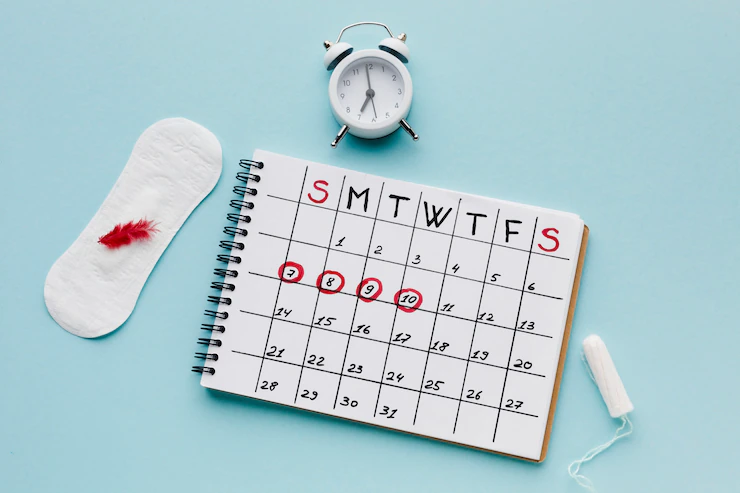Reasons for Early Period and How to Deal with It?
A period cycle repeats every 21 to 40 days and lasts for 3-7 days. But the flow and cycle length can differ. Hence, many women experience a late or early period.
Early periods can surprise you and make you question your health. There’s no need to be alarmed.
Let’s take a look at the reasons for the early period and how to deal with it.
Reasons for the early period
There is a range of factors that leads to the early period, most likely of them are as follows:
Stress
It is one of the leading causes of an early period. Stress causes a lot of chemical changes in your body, leading to delayed ovulation, which causes early or late periods.
So, whatever the reason behind your stress, always look for ways to de-stress yourself as much as possible.
Intense workout
Generally, exercise impacts the hormones that control your menstrual cycle.
Vigorous exercise can also cause irregular periods or can stop your periods completely. This is mostly seen in athletes or gymnasts. This is because your body cannot produce enough hormones to ovulate normally without sufficient energy.
Drastic weight loss or gain
Drastic weight gain or loss is one of the common reasons for the early onset of menstruation. It can affect hormone levels and imbalance your period cycle. The reason for drastic weight gain or loss could be eating disorders, extreme dieting, or a specific type of surgery.
The above-listed reasons are some common lifestyle-related issues that cause the early period cycle.
Some biological and hormonal changes that lead to the early periodare:
Puberty
Puberty is the biological transition of a woman from childhood to adulthood. During puberty, there are several hormonal, physical and biological changes that a woman goes through. This might even lead to irregular or early periods, which is normal during puberty. The cycle regularises within 2-3 years of your first period. However, if you are still concerned, please consult your doctor.
Perimenopause
As per the name, it is the duration before menopause. Women generally reach their menopause in the mid-to-late 40s. Perimenopause lasts for a couple of years, and during this time, women witness drastic hormonal changes, causing irregular and early menstrual cycles. The final stage of perimenopause is when the ovulation stops completely, along with the menstrual flow, known as menopause.
Polycystic ovary syndrome
One of the common reasons for early periods is polycystic ovary syndrome (PCOS), a type of hormonal imbalance which hinders pregnancy in women.
The common symptoms of polycystic ovary syndrome include missed or irregular periods, acne, excessive weight gain and body hair. A combination of hormonal treatments and lifestyle balance can help cure PCOS.
Endometriosis
Endometriosis is a condition when tissue that commonly lines the uterus grows in the outside area like the ovaries and abdomen. This leads to early periods accompanied by heavy and irregular bleeding.
Tips for dealing with early periods
From the above symptoms, it’s normal to say there are many reasons behind the early period, and it’s not always possible to determine the cause.
However, some daily life habits can help deal with early periods.
- A period tracker is helpful, especially if your cycles are uneven. It will help you track your period dates, understand your ovulation period and help you stay on top of your menstrual health.
- Always keep your sanitary kit handy when you are going out.
- Eat nutritious and healthy food for the healthy functioning of the hormones. Avoid consuming high salt-packed food items.
- Get proper sleep, as lack of sleep and rest can disturb your monthly cycle.
- Try practising yoga, meditation, and morning walk. This help manages your stress level.
- Avoid rigorous workouts and training as far as possible. But, if necessary, do balance your workout with an adequate amount of nutrition and protein.
- Keep track of your weight and try maintaining a healthy weight. As obesity often leads to irregular periods.
Hope the above-tips help you deal with early periods. If you’re experiencing frequent early periods, with pain or unusual bleeding, don’t hold back. Consult a healthcare expert for advice and treatment if needed.




